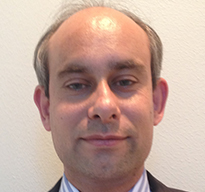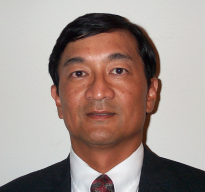Separator Design and Troubleshooting
Disciplines: Projects, Facilities, and Construction
Course Description
This course describes different types of separators and scrubbers for a desired performance, how to design, and how to troubleshoot and debottleneck. We focus on gas-liquid separation with emphasis on liquid removal from gas. Discussions will begin with descriptions of two and three phase separators. The course then covers fundamental separator/scrubber design principles including inlet piping and motion effects on performance. Internals for enhancing separation performance will then be explained. A brief overview of inline and subsea separation will be presented. Troubleshooting and debottlenecking examples of separators and scrubbers will be discussed.
- Different types of Separators and scrubbers
- Different types of separator and scrubber internals
- Theoretical sizing of separators and scrubbers
- Effect of inlet geometry on separation performance
- Case histories
Upon completion of this course, participants should be able to:
- Identify, understand and select different types of separators for a desired service
- Identify, understand and select different types of internals for a specified performance
- Understand and discuss the theoretical basis for sizing separators
- Make a basic sizing/design for a two or three phase separator/scrubber’
- Troubleshoot separation problems in the field
Learning Level
Introductory to Intermediate
Course Length
1 Day
Why Attend
Poor separator or scrubber design can degrade the entire fluid processing system and lead to offspec. oil, gas and/or produced water as well as equipment damage and unplanned shutdowns. This course will give you a better understanding of separator and scrubber designs to eliminate or minimize rework or shutdowns and optimize production and the efficiency of processing facilities.
Who Attends
Engineers that are involved in designing, operating, and evaluating separators and scrubbers. This is an introductory to intermediate course for Engineers (including new) in oil and gas industry process separation.
Special Requirements
- General facilities knowledge
- Calculator (or laptop)
- Attendees can bring relevant field applications and problems to use for in-class discussions
CEUs
0.8 (Continuing Education Units) are awarded for this course.
Cancellation Policy
All cancellations must be received no later than 14 days prior to the course start date. Cancellations made after the 14-day window will not be refunded. Refunds will not be given due to no show situations.
Training sessions attached to SPE conferences and workshops follow the cancellation policies stated on the event information page. Please check that page for specific cancellation information.
SPE reserves the right to cancel or re-schedule courses at will. Notification of changes will be made as quickly as possible; please keep this in mind when arranging travel, as SPE is not responsible for any fees charged for cancelling or changing travel arrangements.
We reserve the right to substitute course instructors as necessary.
Instructors

Victor van Asperen, Chevron, is the former chair of SPE’s Separations Technology Technical Section. He holds an MSc in Chemical Engineering from the Delft University of Technology in The Netherlands and has 21 years of experience in separator design for upstream oil and gas processing, spread over different roles in different geographical locations.

Dr. Robert Chin, Padden Engineering, is co-founder of SPE’s Separations Technology Technical Section; primary author/editor of the Savvy Separator series in SPE’s Oil and Gas Facilities Magazine; and creator of the SPE’s Savvy Separator Training From Home video series. He has 30+ years in the oil and gas industry, mainly with Shell, and was their subject matter expert in Separations. He is consulted globally on separation designs, troubleshooting, and debottlenecking.
